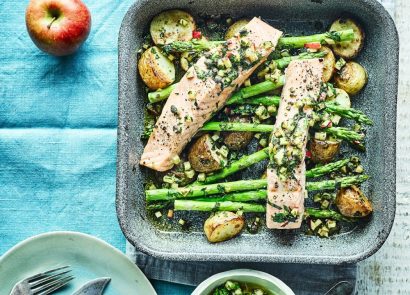When we’re thinking about running, we too often overlook the importance of food. The mentality of “eat less, exercise more” is so ingrained that some of you might even go for a jog on an empty stomach. But knowing the best things to put in your body can help you improve more than just jogging alone. Here’s 7 ways food could make you run faster.
1. Quench your thirst
Staying well hydrated during your running session is essential, as lack of fluids can lead to fatigue, cramping and overheating. “Although you can calculate your weight, sweat rate and running speed, the best rule of thumb is to listen to your body and drink as soon you are thirsty,” explains Rob Clark, nutritionist at Nature’s Plus. “Runners should consume up to 60g of carbs an hour and most energy gels will need to be taken with water to help absorb the nutrients.”
“Don’t forget that strenuous exercise increases free radical damage, which can lead to muscle soreness and inflammation, so try adding an antioxidant powder to your water, like Nature’s Plus Red Lightening (£1.29, Revital).”
2. Pack a protein punch
Pile your plate high with low-fat protein to keep you feeling fuller for longer during your training sessions. “Protein is vital for our bodies and is incorporated in tendons, ligaments, muscle tissue and bones – all essential for a runner,” Higher Nature nutritionist Kelly Rose tells us. “A good intake is essential for all our normal day-to-day processes, but runners have an extra need. When we exercise muscle tissue is damaged, and providing the body with additional protein helps to minimise this.”
Timing is also very important, and studies have shown that if you have protein-rich food alongside carbs, post-training, it can help your muscles recover faster. “High-quality proteins, like chicken, oily fish, red meats, eggs and quinoa, are ideal,” adds Kelly.
3. Carb load
Energy boosting carbs can really rev up your running sessions. Nutritionist, Shona Wilkinson, says: “Carbs are vital for energy during exercise. Start your day with some porridge with nuts, or beans on toast, around 2-4 hours before you work out, and top up with a carbohydrate snack two hours before you run. And, don’t forget to replenish your carb levels after your session – try eating a bagel with jam, or rice cakes with peanut butter within two hours of exercise. You can support your diet further with a supplement to ensure you get all your nutrients to enable you to perform at your best.”
4.Tuck into good fats
Not all fats are bad. It’s key to include essential fatty acids in your diet but stick to foods low in saturated fat and cholesterol to avoid piling on the lbs. “Omega three fats – found in foods such as oily fish, walnuts and flax seeds – help to maintain blood flow and cell membrane health, and reduce inflammation,” explains nutritionist Amanda Hamilton (amandahamilton.co.uk). “This is especially important for recovery if you’re training hard. If you’ve got an endurance race coming up, eat foods, like olives, avocados and almonds, which are a rich source of monounsaturated fats and provide energy for runners.”
5. Include essential vits
Keep your body in tip-top condition by getting plenty of nutrients during your training. “Vitamin C is important for repair and recovery after the natural stress of running,” says Charlotte Watts, nutritional therapist and author of The De-Stress Diet (charlottewattshealth.com).
“It’s needed alongside protein to produce collagen, the basis for all our body structures. Getting your five-a-day is optimal if you’re a runner, and you should consider an extra supplement of 1000mg a day if you’re prone to inflammation.” You can help protect your heart, liver and brain by getting enough vitamin E and A, and including antioxidants, like beta carotene. “Without them in your diet, your recovery and performance may suffer,” says Charlotte.
6. Boost your energy levels
It goes without saying that your body will be burning more fuel during your running sessions. So, in order to boost your performance, you’ll need to keep your energy levels up. “Try a high-glucose gel around 15 minutes prior to running, and within 15 minutes, post-run, for optimum energy levels and to help aid your recovery,” says personal trainer Alex Easby (alexeasby.com). “On longer duration runs, consume a good quality gel or drink halfway through your workout to improve your fitness.”
Remember that quality sleep is key and sleep deprivation combined with glucose can make you even more tired – so make sure you’re getting enough shut-eye after your workouts.
7. Get your five-a-day
Make sure you replenish your body with the nutrients it needs. “Eat vegetables such as beetroot, spinach and celery,” suggests nutritionist Jennie Carter (bodyperfect-nutrition.co.uk). “These can help enhance your endurance due to their high nitrate content and therefore helps you to run for longer.”
Fruits such as watermelon and raisins will help boost your energy levels quickly during running. “Açaí berry juice is also great for boosting your immunity and protecting the body due to its rich antioxidant content,” adds Jennie.



















